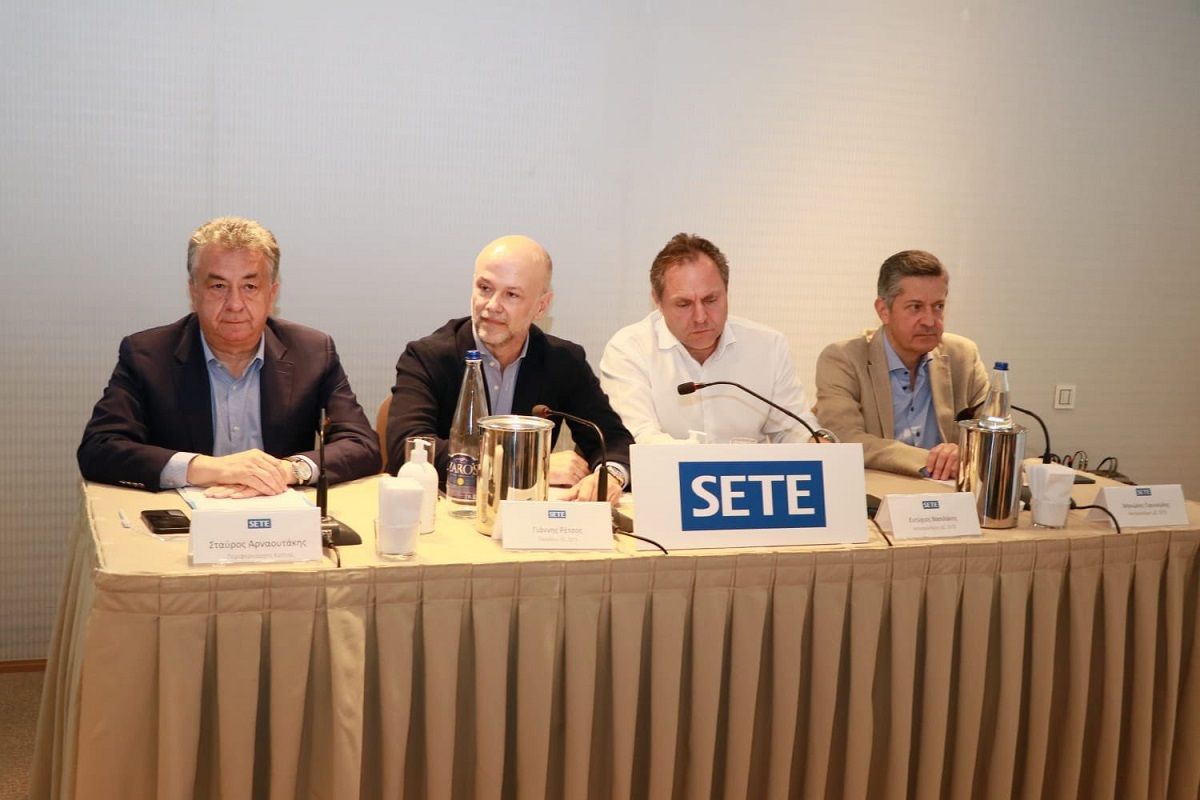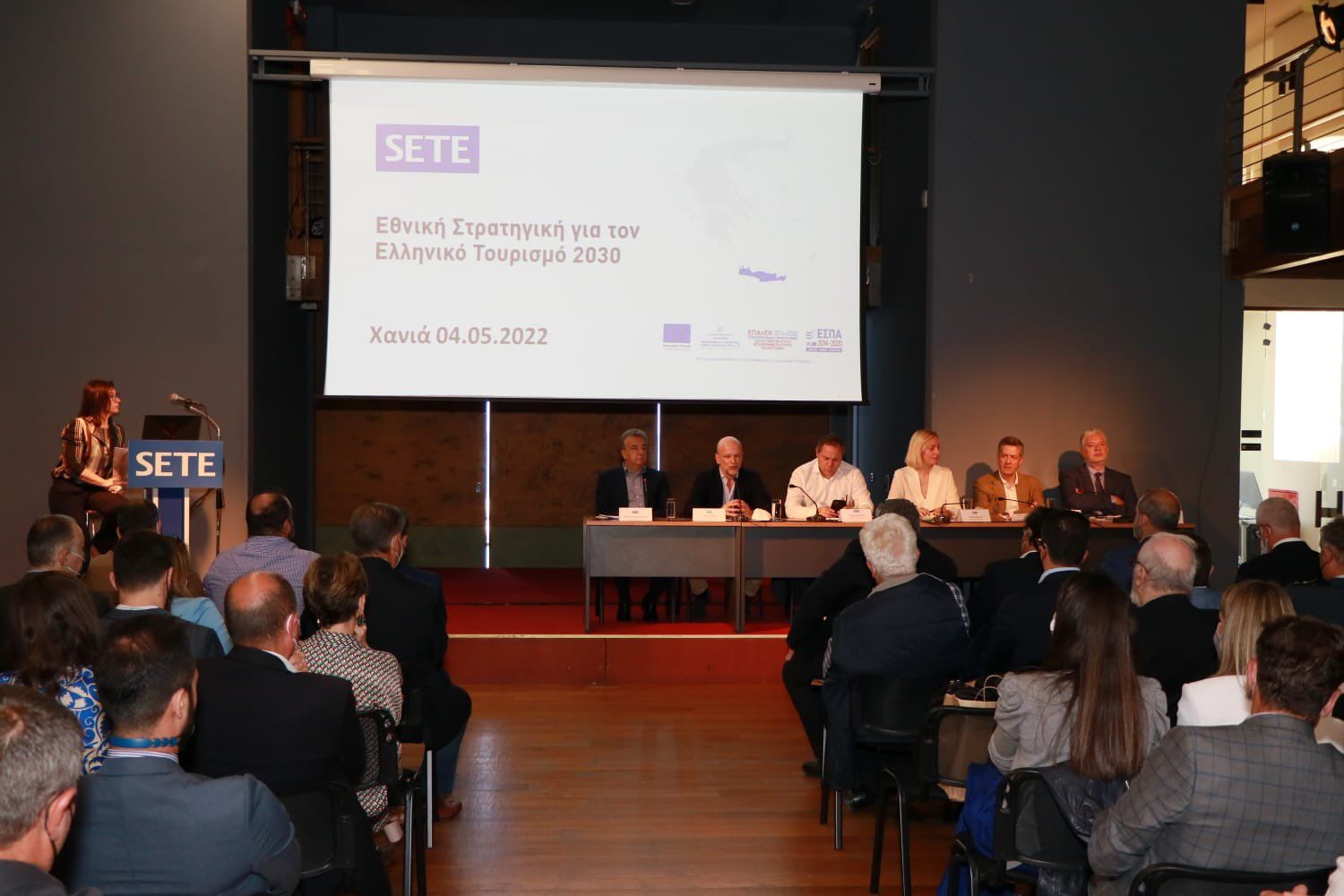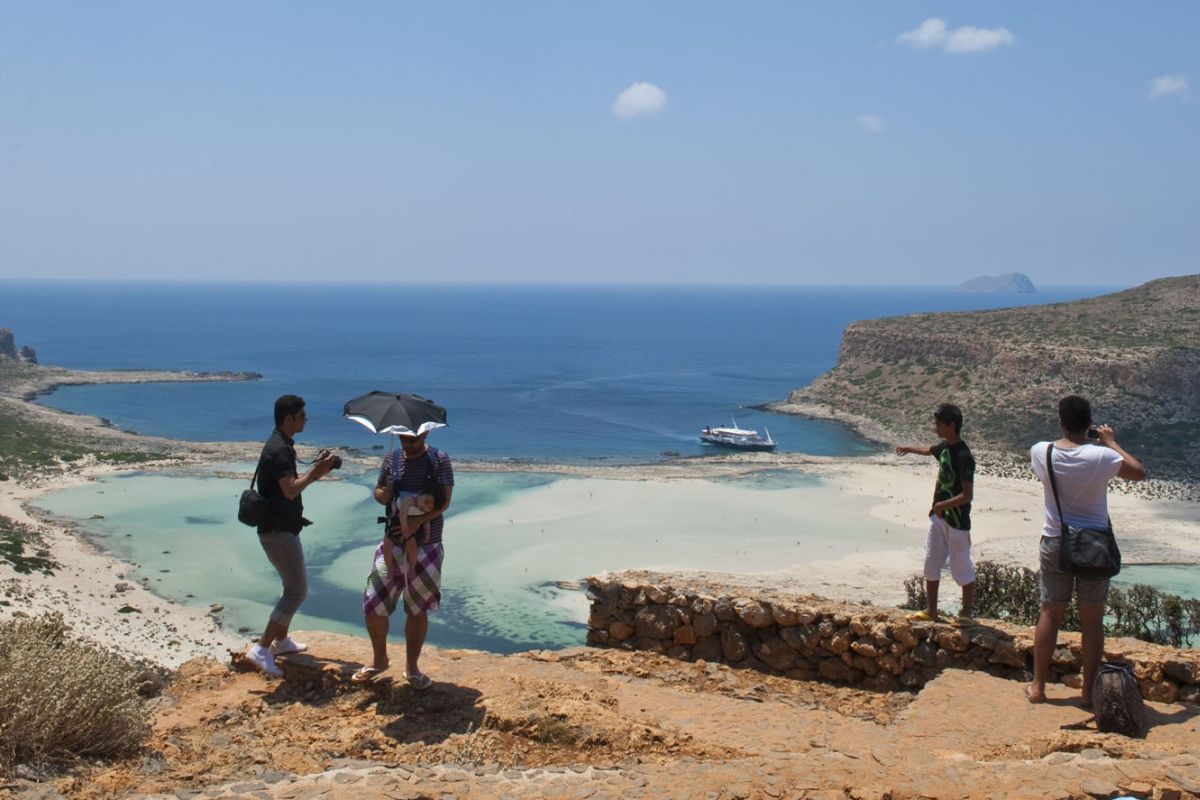Longer Tourism Season, More Destinations are SETE’s Goals for Greece

Crete Governor Stavros Arnaoutakis, SETE President Yiannis Retsos, AEGEAN Chairman Eftichios Vassilakis. Photo source: @Yiannis A. Retsos
Extending the tourism season beyond the traditional summer months, introducing lesser-known destinations and key investments are at the core of the Greek Tourism Confederation’s (SETE) tourism strategy presented this week in Chania, Crete.
SETE President Yiannis Retsos presented the national “Greek Tourism 2030 | Action Plans” during an event on Crete jointly organized by the Center for Mediterranean Architecture in Chania and the Chania Hotels Association.
Retsos underlined the importance of formulating the national plan after dialogue and exchange of ideas with local tourism stakeholders so as to include more players and productive forces in the process.
Later in the week he visited Heraklion, where he stressed the importance of cooperation and synergies so that tourism can evolve in the post-Covid-19 era to meet the new demands and remain competitive.
“The main goals of the new plan are by 2030 to have managed to extend tourism activity beyond the five regions that currently account for about 80 percent of all tourism-related revenue, but also over time, beyond the four months of summer,” Retsos said.
He went on to add that achieving the goal should involve close cooperation between central government, local governments, tour operators and entrepreneurs and productive forces. Efforts should also focus on upgrading and enriching the tourism products on offer with the introduction of alternative forms of tourism and improved infrastructure.
In a recorded message for the event, Tourism Minister Vassilis Kikilias referred to Crete’s potential as a leading and well-reputed destination known for its “sea & sun” and cultural offerings.
“The new national strategy for tourism to 2030 focuses on the significant potential of Crete for further tourism development and a longer tourism period with the aim of developing city break, alternative and thematic products,” he said.
Referring to the issue of staff shortages in tourism, Retsos said it was not only a Greek problem citing a recent study which found that South European countries are short of 700,000 employees. Retsos underlined the need for measures to address the seasonality of tourism jobs.
Lastly Retsos, said he expects Greece to continue its dynamic tourism rebound but the final outcome will depend on developments in the Russia-Ukraine war and the pandemic.
“We want to remain positive, there is a great demand, we’re keeping our optimism, but a better estimate of what will happen this year can be made at the end of June,” he said.







The infrastructure needs to be addressed the beach front walkways and stairs need fixing in Makgrialos and Agios Nicolas they are falling into the sea.